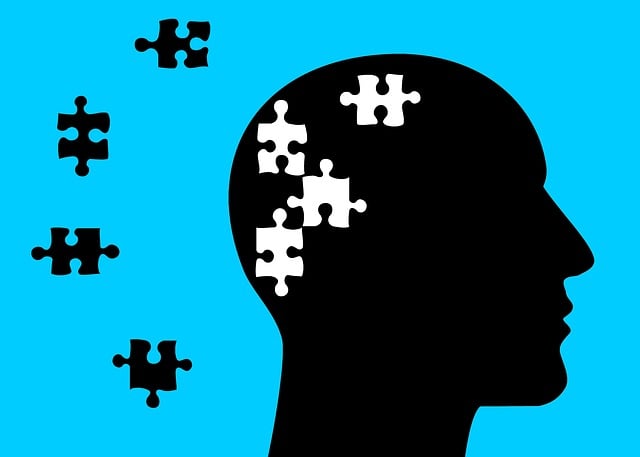Mental health data analysis leverages statistics to identify trends, inform evidence-based decisions, and adapt therapeutic practices. Interpretive techniques transform raw data into actionable insights, such as the impact of emotional intelligence on bariatric therapy success in Lone Tree Evaluations. This holistic approach combines physical and mental health transformations, addressing cultural sensitivities for inclusive care. By integrating data insights, professionals enhance patient support, improve outcomes, and prevent healthcare provider burnout.
Mental health data analysis is a powerful tool for understanding and improving individual well-being. This article delves into the intricacies of this process, from establishing a robust foundation with foundational knowledge and statistical methods to interpreting complex data. We explore techniques that transform raw numbers into actionable insights, enhancing our capacity to support mental health initiatives.
Through a case study focusing on Lone Tree Bariatric Evaluations Therapy, we demonstrate how strategic data analysis drives successful outcomes in mental health care.
- Understanding Mental Health Data: A Foundation for Effective Analysis
- The Role of Statistics in Uncovering Patterns and Trends
- Interpretive Techniques: From Numbers to actionable insights
- Lone Tree Bariatric Evaluations Therapy: A Case Study in Mental Health Data Application
Understanding Mental Health Data: A Foundation for Effective Analysis

Understanding Mental Health Data is a critical step before any analysis or interpretation. It involves grasping the nuances and complexities of individual and collective experiences related to mental well-being, including emotional states, behaviors, and thoughts. This foundation requires an awareness of diverse factors that influence mental health, such as genetics, environment, socio-cultural context, and life events. In the context of Lone Tree Bariatric Evaluations Therapy, for instance, understanding patient data means comprehending not just their weight loss journey but also their psychological states, coping skills development, and any underlying conflicts or stressor resolution techniques they’ve employed.
Effective analysis leverages this understanding to identify patterns, trends, and insights within the data. It involves using robust methodologies and statistical tools to explore connections between mental health indicators, treatment outcomes, and relevant demographic information. Moreover, integrating practices like Mindfulness Meditation and Conflict Resolution Techniques into data interpretation can provide deeper context, revealing how these coping skills influence an individual’s journey towards improved mental well-being. Such an approach ensures that analysis goes beyond mere numbers, offering a holistic perspective that respects the complexity of human experience.
The Role of Statistics in Uncovering Patterns and Trends

In the realm of mental health data analysis, statistics play a pivotal role in uncovering hidden patterns and trends within populations. By meticulously examining numerical data from various sources like Lone Tree bariatric evaluations and therapy sessions, researchers can identify prevalent issues and emerging concerns. This quantitative approach allows for evidence-based decisions, guiding the development of targeted interventions and tailored therapies. For instance, statistical analysis might reveal a higher incidence of specific mental health disorders among certain demographics, prompting healthcare professionals to adapt their risk assessment strategies (Risk Assessment for Mental Health Professionals).
Furthermore, statistics enable the evaluation of treatment effectiveness and patient outcomes over time. Through comparative studies and trend analyses, researchers can assess whether coping skills development programs or communication strategies are yielding positive results. This data-driven perspective empowers mental health professionals to refine their practices, ensuring that they remain responsive to the evolving needs of their clients and communities.
Interpretive Techniques: From Numbers to actionable insights

Interpretive techniques play a pivotal role in transforming raw mental health data into actionable insights. By employing sophisticated statistical methods and qualitative analysis, professionals can uncover profound trends and patterns within the numbers. This process involves delving into various data points, from demographics to treatment outcomes, to identify risk factors and correlations. For instance, Lone Tree Bariatric Evaluations Therapy might reveal a higher success rate among patients with strong emotional intelligence, highlighting the potential impact of this trait on depression prevention.
Through these interpretations, mental health professionals can make informed decisions, adapt therapeutic approaches, and tailor interventions. The ability to translate data into actionable insights empowers healthcare providers to offer more effective support. This is particularly crucial in assessing risk, where early detection and preventive measures can significantly influence patient outcomes. By integrating emotional intelligence into risk assessments, professionals can further enhance their understanding of complex mental health cases.
Lone Tree Bariatric Evaluations Therapy: A Case Study in Mental Health Data Application

Lone Tree Bariatric Evaluations Therapy offers a compelling case study for applying mental health data analysis. By meticulously evaluating patients’ psychological profiles alongside their physical changes, therapists can identify nuanced patterns and trends that shed light on individual experiences. This integrated approach goes beyond surface-level improvements, delving into the complex interplay between body and mind. For instance, Self-Awareness Exercises incorporated within the therapy program have proven effective in uncovering underlying emotional triggers contributing to weight struggles, thereby fostering a holistic healing process.
The case study also highlights the significance of Cultural Sensitivity in Mental Healthcare Practice. By tailoring interventions to accommodate diverse cultural backgrounds, therapists ensure that mental health support is inclusive and relevant. This individualized approach not only enhances treatment outcomes but also promotes Burnout Prevention among healthcare providers by addressing the unique needs of each patient with empathy and understanding.
Mental health data analysis is a powerful tool for understanding complex issues and guiding interventions. By combining statistical methods with thoughtful interpretive techniques, we can transform raw numbers into actionable insights. As illustrated by the case study of Lone Tree Bariatric Evaluations Therapy, effective application of mental health data leads to improved outcomes and personalized care. This interdisciplinary approach, rooted in both statistics and clinical expertise, is key to navigating the intricate landscape of mental wellness and fostering meaningful transformation.









